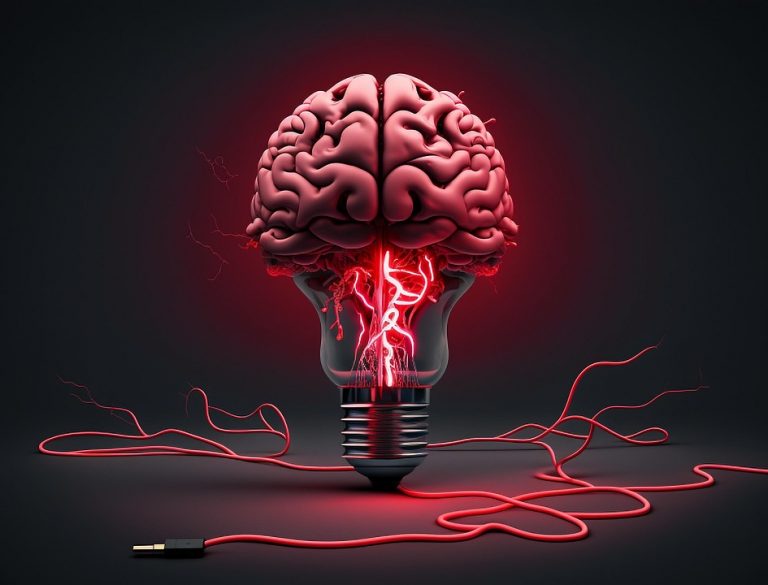Brain focus herbs are powerful, natural allies that sharpen attention, steady your mood, and help you get more done with less effort. They’re plants and extracts—like rosemary, ginkgo, and bacopa—that influence blood flow, neurotransmitters, inflammation, and stress response. If your days are crowded, and your mind feels scattered, these herbs matter because they give your brain the basic support it needs to focus, remember, and perform.
Contents
- Why Brain Focus Herbs Matter To You
- Brain Focus Herbs: How They Work
- 1. They Improve Blood Flow To Key Brain Areas
- 2. They Support Neurotransmitter Balance
- 3. They Protect Neurons From Wear And Tear
- 4. They Reduce Inflammation That Clouds Thinking
- 5. They Calm Stress And Support Resilience
- 6. They Enhance Neuroplasticity And Learning
- 7. They Offer Practical, Daily Boosts Without Heavy Prescription Side Effects
- How To Use Brain Focus Herbs Safely And Effectively
- The Best Brain Focus Herbs To Try
- What The Research And Experts Say
- Real-Life Example: A Working Mom’s Routine
- Precautions
- Bottom Line
- Bottom Line
- FAQ
Why Brain Focus Herbs Matter To You
You don’t need a lecture. You need results. When you use the right brain focus herbs, you taste clarity, not fog. These herbs don’t promise miracles overnight. They change the chemistry and circulation that underpins concentration. That’s why researchers at reputable institutions study them, and why clinicians sometimes recommend them as part of a plan that includes sleep, nutrition, and exercise.
Brain Focus Herbs: How They Work
Here’s the simple, bold truth: different herbs help different parts of the brain. Some increase blood flow. Some protect neurons. Some balance neurotransmitters. When combined smartly, these effects add up to sharper attention and steadier mental energy.
Scientists at leading universities have published trials showing measurable benefits from herbs such as bacopa and ginkgo when used in standardized doses. You can read clinical summaries at places like PubMed and the National Institutes of Health for detailed evidence. These aren’t folk claims; they’re testable, repeatable findings that matter to people who want performance they can feel and measure.
1. They Improve Blood Flow To Key Brain Areas
More blood means more oxygen and nutrients. Ginkgo biloba is famous for increasing cerebral blood flow. When the brain gets better circulation, you feel less fuzzy and more present.
Imagine walking into a meeting with a calm mind because your brain chemistry is optimally fed. That’s what improved perfusion can do. Clinical trials show ginkgo can help with attention and memory in adults when taken consistently.
2. They Support Neurotransmitter Balance
Neurotransmitters are the little messengers that tell your brain to pay attention or to wander off. Herbs like Rhodiola rosea and bacopa monnieri influence dopamine, serotonin, and acetylcholine pathways—key players for alertness and working memory.
You’ll notice fewer scattered thoughts and better recall when those systems are stable. Research from reputable institutions shows bacopa can improve memory speed and accuracy after several weeks of use, especially when combined with lifestyle changes.
3. They Protect Neurons From Wear And Tear
Oxidative stress chips away at mental sharpness over time. Herbs rich in antioxidants—rosemary, green tea extract, and ashwagandha—help protect neurons and preserve synaptic integrity.
Think of them as oil for your brain’s engine. When oxidative damage is reduced, you lose fewer mental seconds to confusion and fatigue. Studies published in peer-reviewed journals show antioxidant herbs reduce markers of cellular stress and may support cognitive endurance.
4. They Reduce Inflammation That Clouds Thinking
Chronic inflammation doesn’t just hurt your body. It muddies cognition. Turmeric (curcumin) and ginger fight inflammation with well-studied mechanisms. Lower inflammation often translates into clearer thinking and less mental fatigue.
Clinical research correlates lower inflammatory markers with better cognitive outcomes. If your diet or life leaves you with a steady dribble of inflammation, adding anti-inflammatory brain focus herbs can make a practical difference.
5. They Calm Stress And Support Resilience
Stress scatters attention. Adaptogenic herbs—ashwagandha, Rhodiola, holy basil—teach your body to respond to stress without burning through your concentration reserves.
When you’re less reactive, you focus more. Random stressors stop hijacking mental bandwidth. Studies on adaptogens demonstrate reductions in perceived stress and improvements in cognitive tests under stress conditions.
6. They Enhance Neuroplasticity And Learning
For tougher tasks—learning a new language or mastering a complicated project—you want neuroplasticity. Lion’s mane mushroom and bacopa have been linked to nerve growth factor activity, which supports the creation of new synapses and learning pathways.
That means faster skill acquisition and better retention. Research from respected labs indicates these herbs can support brain-derived factors that favor growth and repair.
7. They Offer Practical, Daily Boosts Without Heavy Prescription Side Effects
You’re busy. You want something that integrates with life. Many brain focus herbs are available as teas, tinctures, or capsules. They provide steady, gentle benefits without the sharp peaks and crashes of stimulants.
Clinical practitioners often use them as part of a holistic plan: sleep hygiene, targeted nutrition, movement, and stress management. Evidence-based protocols published by university clinics show improved outcomes when herbs are used as an adjunct—not a standalone quick fix.
How To Use Brain Focus Herbs Safely And Effectively
Start with these plain rules: quality, dose, and patience. Use standardized extracts from reputable brands. Respect dosage guidelines and talk to your clinician if you’re on medications—some herbs affect blood thinning, sedatives, or blood pressure.
- Use single-herb products for clear monitoring, then consider formula blends.
- Give herbs time—four to twelve weeks is common for noticing meaningful benefits.
- Pair herbs with sleep, protein at meals, and short movement breaks for compound benefits.
If you want a quick routine: morning cup of green tea (gentle caffeine + L-theanine), mid-morning bacopa or ginkgo supplement with breakfast, and ashwagandha in the evening for stress recovery. Adjust based on how your body responds.
The Best Brain Focus Herbs To Try
No one herb fits everyone. Here are reliable choices with practical notes:
- Bacopa monnieri — Supports memory and attention with consistent use. Look for 300 mg of a standardized extract.
- Ginkgo biloba — Helps circulation and attention; 120–240 mg daily is common in research.
- Rhodiola rosea — Great for mental fatigue and stress resilience. Start with 100–200 mg.
- Ashwagandha — Calms stress and protects cognition, often 300–600 mg per day.
- Lion’s Mane — Supports neuroplasticity and learning; dosages vary by extract quality.
- Turmeric (Curcumin) — Anti-inflammatory support for long-term clarity—use formulations with piperine or liposomal delivery.
- Green Tea (L-theanine + caffeine) — Immediate focus lift with calming balance.
Pairing herbs thoughtfully matters. For acute tasks, green tea plus L-theanine works fast. For long-term memory and learning, bacopa and lion’s mane are reliable.
What The Research And Experts Say
You want more than hopeful testimonials. University research, hospital reviews, and government summaries have looked at many of these herbs. For instance, clinical trials on bacopa and ginkgo have demonstrated small-to-moderate cognitive improvements in adults. Reviews published by academic centers synthesize that evidence and emphasize realistic expectations and safety checks.
Integrative medicine physicians often recommend herbs as complements to conventional care. When properly selected and dosed, these herbs can reduce reliance on stimulants and improve steady performance.
Real-Life Example: A Working Mom’s Routine
Sarah is a project manager, mother, and night-class student. Her brain felt like a refrigerator magnet—scattered and stuck. She added a morning green tea, a midday bacopa capsule, and evening ashwagandha. After eight weeks, she reported calmer mornings, better recall during meetings, and less evening rumination. That’s not magic; it’s consistency plus sensible choices.
Precautions
Herbs are potent. If you’re pregnant, breastfeeding, or on blood thinners, speak to your healthcare provider. Interactions exist. Quality varies—choose third-party tested brands. Keep a log when you start an herb so you can track side effects or benefits.
Bottom Line
Bottom Line
Brain focus herbs are practical, evidence-informed tools you can add to your daily routine to clear fog, steady attention, and support learning. Used responsibly—paired with sleep, nutrition, and movement—they deliver consistent mental lift without needing a prescription. Try one or two, give them time, and watch how small, steady changes build real momentum in your work and life.
Be curious. Start small. Track results. You’ll know if an herb is helping by how you feel and what you do differently.
FAQ
Do brain focus herbs work immediately?
Some herbs provide noticeable lifts within an hour (green tea, Rhodiola), but most, like bacopa and lion’s mane, require weeks of consistent use for full benefits.
Are brain focus herbs safe long-term?
Many are safe when taken at recommended doses, but long-term safety depends on quality and interactions. Consult a clinician if you have chronic conditions or take medications.
Can I take multiple brain focus herbs together?
Yes—many people combine herbs effectively, but start one at a time to watch for effects. Follow dosing guidelines and choose reputable brands.
Where can I find reliable research on brain focus herbs?
Look to university studies and government health sites for clinical trials and reviews. Links embedded above lead to peer-reviewed summaries and institutional guidance.
Will brain focus herbs replace good sleep and diet?
No. They amplify the benefits of sleep, nutrition, and exercise. Think of them as support, not replacement.
— — —
References
The National Institutes of Health provides a comprehensive overview of herbal supplement research related to cognition and brain health (http://www.nih.gov).
Harvard Health Publishing discusses evidence and clinical contexts for herbs like ginkgo and turmeric in cognitive health (http://www.health.harvard.edu).
PubMed hosts peer-reviewed clinical trials and systematic reviews on bacopa, ginkgo, and adaptogens with accessible abstracts (http://www.pubmed.ncbi.nlm.nih.gov).
Johns Hopkins Medicine offers patient-centered guidance on supplements, safety, and interactions for cognitive-support herbs (http://www.hopkinsmedicine.org).








